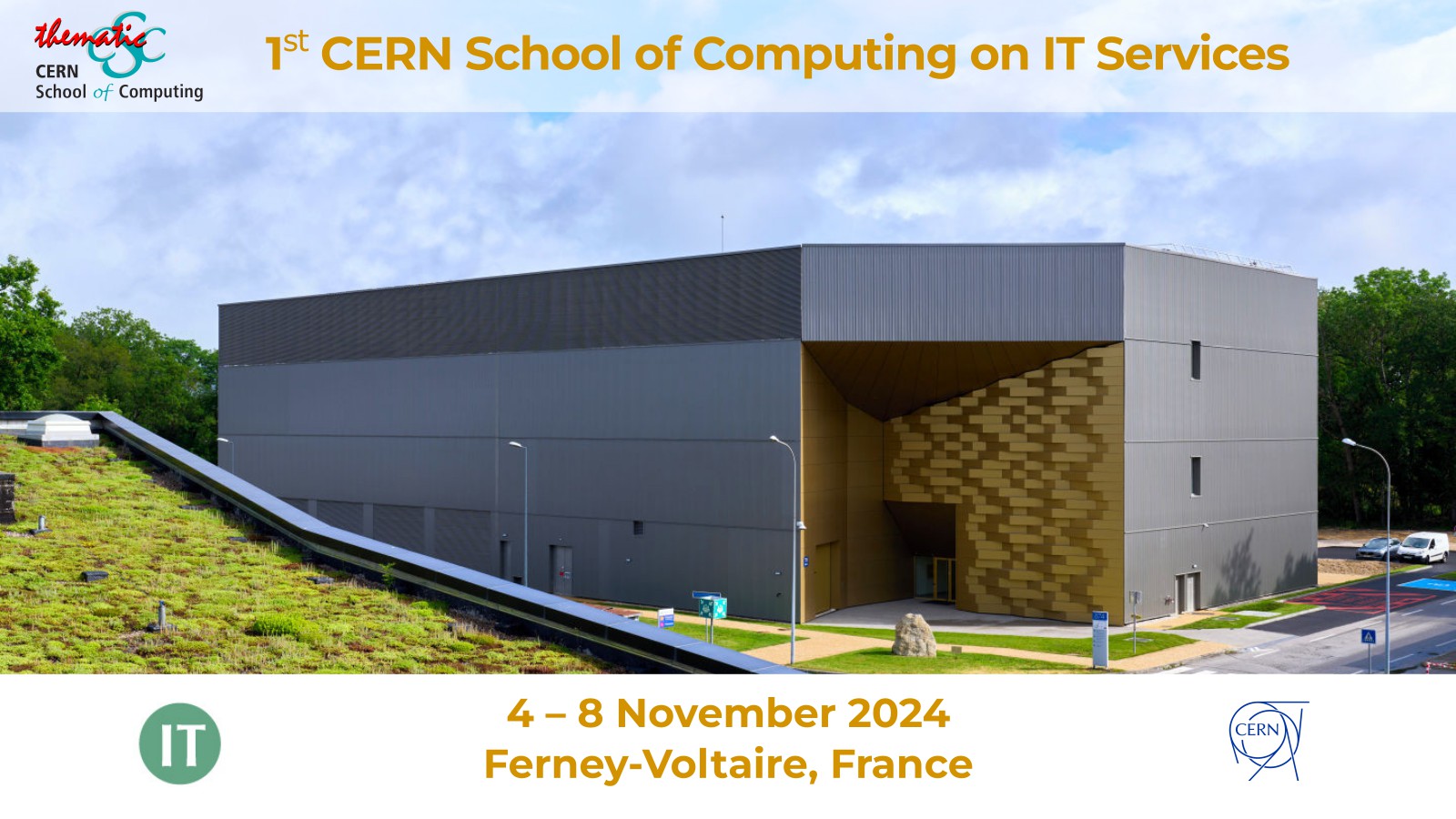CERN School of Computing on IT Services 2024
The 1st CERN School of Computing on IT Services will take place on November 4-8, 2024 in Ferney Voltaire, France. The school will be hosted at the Appart City hotel.
The school on IT Services aims to empower CERN members of personnel (including Students, Fellows, Origin, Quests, Staff, and Users) to get the most out of the computing services delivered by the CERN IT Department to the physics community.
The school is recommended for any person that is using the CERN IT services either to deliver information, analyze data, automate tasks or work in engineering projects. We expect participation from both active users who would like to be more proficient and newcomers at CERN that would like to discover and get an introduction to the ecosystem of computing services available to all CERN users. The school is not open to persons without a CERN status.
The school will focus on solutions for everyday problems and it will address several use cases with hands-on sessions and demonstrations such as:
- Software development and hosting, including software maintenance strategies
- Reproducible data analysis and reusable containers for scientific workflows
- Using the Data Center infrastructure for Machine Learning applications
- Information and data management, including information publishing through the creation and maintenance of web sites
Several IT services are covered, including Git, Jira, MS Forms, Dockers, Continuous Integration, CERN SSO (Single Sign-on), tokens, Authorization API, e-groups / roles, Database on Demand Service, Swan, Reana, WordPress, WebEOS, SharePoint, EOS, CERNBOX, CEPH, …
In addition the school has the ambition to improve the participants personal networking with members of the IT department and exchange ideas on the future evolution of its services as the lecturers are top technology experts or service managers from the IT department.
This is the first edition of this new school which is why the number of participants will be limited to approximately 30 students. The programme offers 26 hours of lectures and hands-on exercises, as well as student presentation sessions. The school is non-residential, lunches and one dinner will be provided and are included in the fee.
Important dates 2024
- August 14 - application opens
- September 18 - application closes
- October 2 - invitations sent to selected students
- October 16th - participation fee deadline
